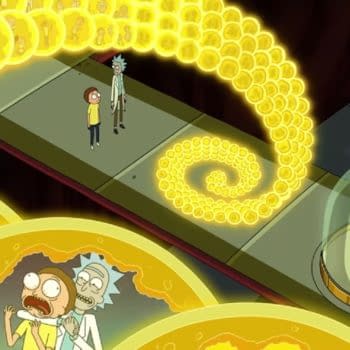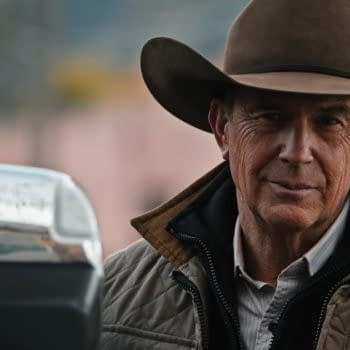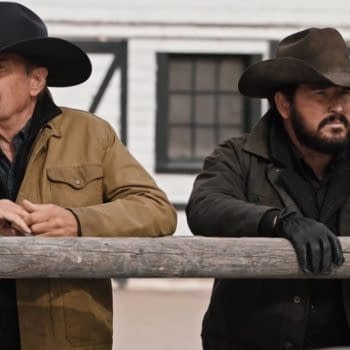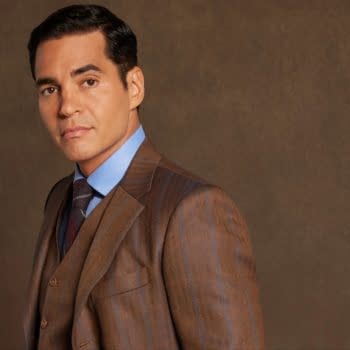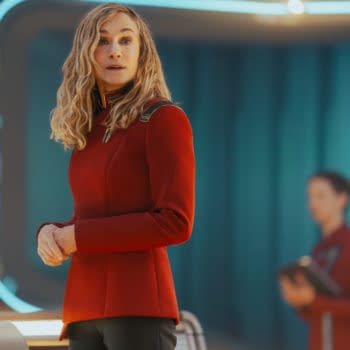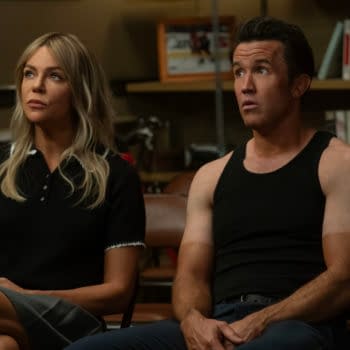Posted in: Netflix, streaming, TV, YouTube | Tagged: bleeding cool, cable, Lemony Snicket, neil patrick harris, opinion, Patrick Warburton, streaming, television, tv
A Series of Unfortunate Events: Exactly The Show We Need Right Now
Netflix's A Series of Unfortunate Events hit the streaming platform in 2017 with a lot of discussion of star and executive producer Neil Patrick Harris, but also the discussion of how dark the series was. But this darkness permeated the source material, books that were written for children, and, in retrospect, the series was prophetic about the calamities facing us moving forward. Is there truly any better way to describe what 2020 has been other than "a series of unfortunate events?" But even despite dire times, it presents a path forward which is not completely hopeless.
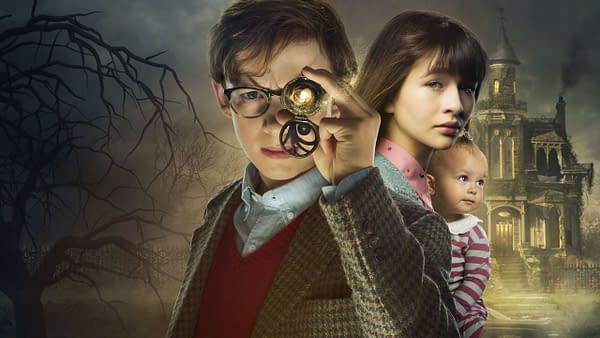
Our story follows the Baudelaire children, Violet (Malina Weissman), Klaus (Louis Hynes), and Sunny (Presley Smith), who are orphaned after a tragic fire and then placed in the care of a series of relatives and caretakers. Meanwhile, the villainous Count Olaf (Harris) attempts to steal the vast fortune they stand to inherit through a series of schemes.
Despite the terrible circumstances, there are multiple hopeful pieces that we should dare to remember. While watching the news unfold over the past weeks, months, and *gestures vaguely* all of this, I have been reminded over and over of the words of narrator Lemony Snicket (Patrick Warburton) explaining, "Trouble and strife can cover this world like the dark of night, or like smoke from a suspicious fire. And when that happens, all good, true, and decent people know that it's time to volunteer."
The Most Unfortunate Series of Events is that Adults and Institutions Will Fail You
The biggest recurring theme of the show is the failure of the various adults who attempt to help the Baudelaires. This begins with Mr. Poe (K. Todd Freeman) from the bank who manages the Baudelaire estate. He repeatedly fails to listen to Violet and Klaus, even as they tell him repeatedly that this person isn't who they claim to be, but is actually Count Olaf in disguise. Mrs. Poe, who writes for the local newspaper, The Daily Punctilio, seems more intent on generating salacious headlines (the original "clickbait") than ever telling the truth.
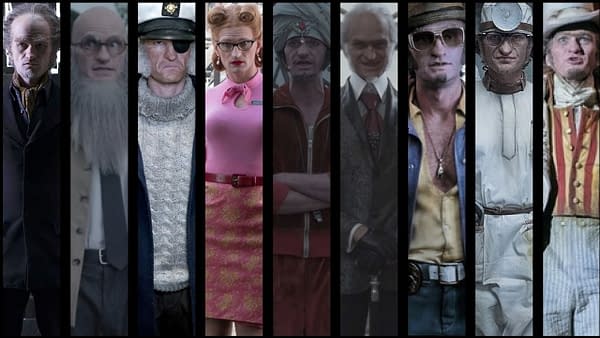
Even those who genuinely care about the Baudelaires and their welfare are easily duped. Aunt Josephine (Alfre Woodard), once considered the bravest of all of their parents' friends, is so paralyzed by fear of everything from real estate agents to doorknobs she fails to protect the children from Count Olaf dressed as "Captain Sham." As a stickler for grammar, you would expect her to understand the double meaning of the name Sham, but she never does and is eventually murdered by her paramour.
Justice Strauss (Joan Cusack) is a judge on the High Court, and while she is kind to the Baudelaires, she fails to see through the very transparent plot to get Violet to marry Count Olaf onstage by performing an actual wedding. Instead, Olaf appeals to her vanity and failed ambition of becoming an actor by making her focus on only the idea that this is a theatrical performance.
Similarly, Count Olaf plays on the vanity and obsession of Uncle Monty (Aasif Mandvi) in his disguise as his assistant Stefano. While Monty "sees through" the disguise, he doesn't recognize him as Count Olaf but rather assumes that "Stefano" is a spy from his rivals at the Herpetological Society trying to professionally embarrass him. His shortsightedness also leads to his murder by Count Olaf.
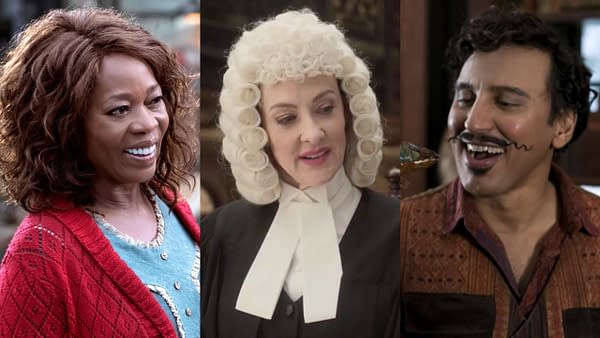
This is the true series of unfortunate events: five adults, well-educated, representing some of the most important institutions of our day– banking, the free press, the courts, humanities, science– all of them fail The Baudelaires, utterly and completely. This continues throughout the Baudelaires' adventures, and these are just the people acting in good faith. Bad faith actors at the Lucky Smells Lumber Mill (industry), Prufrock Preparatory School (education), Councils of Elders (elected government), and monied interests concerned with what is and isn't trendy and popular (celebrities and wealth) are even worse for the Baudelaires. So too are all of our institutions failing us today, leading to everything we are facing.
No One is Coming To Save You Except You
There is a heartbreaking moment in this show which I will not spoil for those who have not seen it, but those who have, know what I am speaking of. Suffice to say, throughout the show, Will Arnett and Cobie Smulders have been trying to make it back "to save the children." But, as Lemony Snicket warns starting in episode 1, there are no happy endings here. This is A Series of Unfortunate Events, not Happily Ever After.
The lesson Klaus, Sunny, and Violet learn not long into Season 1 is that no one is coming to save them. They have to make their own decisions and survive on their own wits. Luckily, they have those in spades. But even going into Season 3, they knew that they had to build on the legacy their parents had taught them but build something completely new. Because they did not foresee nor prepare for so many of the calamities their children would face. And as support structure after support structure fails, they would have to do something new and find their own way.
So too must we learn to navigate these new, tragic waters where the so-called "adults" of the world are continually failing us, and, like Lemony Snicket said, when we smell and see the smoke, that is when it is time for all of us to volunteer. And so we see the activism of Baudelaire children everywhere showing up to fight for racial justice by flooding racist Twitter and TikTok hashtags with KPop posts and even derailing hate rallies. But above all, the Baudelaires stuck together and never gave up, no matter how dire the circumstances.
A Series of Unfortunate Events may not be everyone's particular cup of tea, but it helps bring hope and comfort in a time seemingly as tragic and farcical as the events of the show/books.




